Did Captain Robert Jenkins’ Ear Start A War That Lasted 9 Years?
Ellen Lloyd - AncientPages.com - There are many reasons why humans start a war. Most common conflicts involve disputes over territories, money, or revenge. Sometimes unusual events can also lead to the start of a war.
The so-called War of Jenkins' Ear lasted 9 years, but there is much more to this story than “just” the loss of an ear.
Did Captain Robert Jenkins' Ear Start A War That Lasted 9 Years? - Background image: HMS Centurion captures Nuestra Señora de Covadonga in the time of the famous War of Jenkin's Ear. credit: Public Domain
On April 9, in 1731, while returning home from a smuggling mission in the West Indies, Captain Robert Jenkins’s ship Rebecca was boarded by Spanish coast guards on suspicion of smuggling near Havanna, Cuba.
As punishment for raiding Spanish ships, Juan de León Fandiño, commander of the Spanish coast guard ship, cut off Captain Jenkin’s ear with a sword and warned that the English King would suffer the same fate if ever caught doing the same.
Why Did England And Spain Fight Over An Ear?
Captain Jenkins returned to England and complained to the English King, but the event aroused little interest at the time.
In those days, there were frequent clashes in the West Indies between ships of the European colonial powers, usually over issues of trade.
The Spanish attempted to maintain a monopoly on trade with their colonies, which the British and others consistently tried to break. Britain sought to expand its trade in the Americas, and its sailors carried out illicit trade in Spanish territories. Both Spanish and British crews frequently launched raids on the other’s ships, making trade in the Caribbean increasingly expensive and risky.
As tension between England and Spain escalated over trading issues, the situation changed and Jenkins’ ear was used as a motif to start a war. The ear became a symbol for the outrage the British public increasingly felt towards what it perceived as Spanish aggression on the high seas.
 Captain Robert Jenkins shows his severed ear to Robert Walpole. Courtesy of British Museum, London
Captain Robert Jenkins shows his severed ear to Robert Walpole. Courtesy of British Museum, London
According to some sources, Captain Jenkins preserved his ear in a jar. Seven years later, he presented the ear to the Parliament, and the outraged English public demanded retribution. The ear simply added strength to existing demands for war.
Many historians say there is little evidence Captain Jenkins really told his story with dramatic details before a committee of the House of Commons, showing his severed ear pickled in a jar.
Instead, his plight was highly dramatized and contributed to the momentum of the political opposition campaign urging an immediate offensive against Spain.
What we do know, is that the British First Minister Sir Robert Walpole found himself increasingly under pressure from his opposition in Parliament and declared was in October 1739.
The conflict between England and Spain lasted from 1739 to 1748, but neither side was making significant gains.
The hysteria surrounding Jenkins’ Ear gave the war its name. However, in reality, the conflict was not about the loss of a body part but securing access to trade and resources.
Written by Ellen Lloyd – AncientPages.com
Copyright © AncientPages.com & Ellen Lloyd All rights reserved. This material may not be published, broadcast, rewritten or redistributed in whole or part without the express written permission of AncientPages.com and Ellen Lloyd
More From Ancient Pages
-
 Unexpected Discovery Of Europe’s Oldest Vanilla Pod In Prague Castle – Was It Used For Alchemical Experiments?
Archaeology | Apr 8, 2025
Unexpected Discovery Of Europe’s Oldest Vanilla Pod In Prague Castle – Was It Used For Alchemical Experiments?
Archaeology | Apr 8, 2025 -
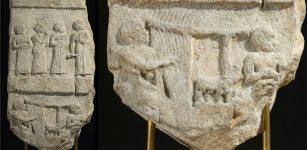 Mesopotamian Music Stele That Commemorates Gudea King Of Lagash In Temple Foundation Ceremony
Artifacts | Dec 12, 2016
Mesopotamian Music Stele That Commemorates Gudea King Of Lagash In Temple Foundation Ceremony
Artifacts | Dec 12, 2016 -
 Ancient DNA Reveals A Diverse Community Lived At Machu Picchu, The ‘Lost City Of The Incas’
Archaeology | Jul 26, 2023
Ancient DNA Reveals A Diverse Community Lived At Machu Picchu, The ‘Lost City Of The Incas’
Archaeology | Jul 26, 2023 -
 A 1,000-Year-Old Intact Mummy Unearthed In Ancient Pachacamac Site, Peru
Archaeology | May 31, 2018
A 1,000-Year-Old Intact Mummy Unearthed In Ancient Pachacamac Site, Peru
Archaeology | May 31, 2018 -
 2,700-Year-Old Ceramic Sculpture Of Goddess Found In Aegean Sea
Archaeology | Feb 28, 2017
2,700-Year-Old Ceramic Sculpture Of Goddess Found In Aegean Sea
Archaeology | Feb 28, 2017 -
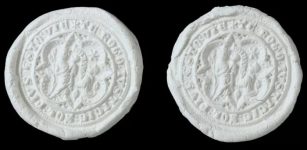 ‘Completely Unique’ Seal Matrix Found Near Norwich, UK
Archaeology | Dec 1, 2023
‘Completely Unique’ Seal Matrix Found Near Norwich, UK
Archaeology | Dec 1, 2023 -
 Puzzling Sakwala Chakraya Carving Could Be World’s Oldest Map Of The Universe – Mystery Of Sri Lanka’s Stargate
Featured Stories | May 15, 2021
Puzzling Sakwala Chakraya Carving Could Be World’s Oldest Map Of The Universe – Mystery Of Sri Lanka’s Stargate
Featured Stories | May 15, 2021 -
 Unique Finds Discovered In Oman – Rub’al-Chali Desert Reveals Its Secrets
Archaeology | Apr 20, 2023
Unique Finds Discovered In Oman – Rub’al-Chali Desert Reveals Its Secrets
Archaeology | Apr 20, 2023 -
 Legendary Mount Penglai Where The Eight Immortals Reside
Chinese Mythology | Feb 20, 2018
Legendary Mount Penglai Where The Eight Immortals Reside
Chinese Mythology | Feb 20, 2018 -
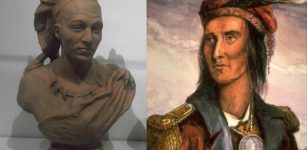 Tecumseh: Native American Mystic, Warrior, Hero And Military Leader Of The Shawnee
Featured Stories | Jun 3, 2016
Tecumseh: Native American Mystic, Warrior, Hero And Military Leader Of The Shawnee
Featured Stories | Jun 3, 2016 -
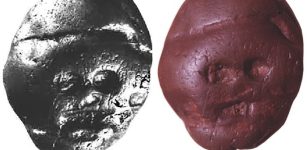 Why Are Manuports Like The Makapansgat Cobble Interesting Archaeological Artifacts?
Artifacts | Mar 15, 2024
Why Are Manuports Like The Makapansgat Cobble Interesting Archaeological Artifacts?
Artifacts | Mar 15, 2024 -
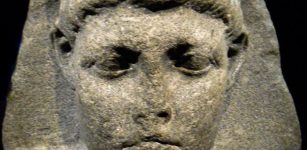 ‘Little Caesar’: Forgotten ‘King Of Kings’ Who Died Very Young
Featured Stories | May 11, 2020
‘Little Caesar’: Forgotten ‘King Of Kings’ Who Died Very Young
Featured Stories | May 11, 2020 -
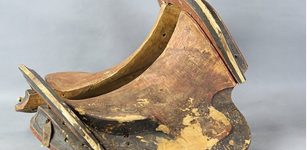 World’s Oldest Known ‘True’ Saddle Discovered In East Asia
Archaeology | Dec 11, 2023
World’s Oldest Known ‘True’ Saddle Discovered In East Asia
Archaeology | Dec 11, 2023 -
 On This Day In History: Jukebox Installed For The First Time In San Francisco – On Nov 23, 1889
News | Nov 23, 2016
On This Day In History: Jukebox Installed For The First Time In San Francisco – On Nov 23, 1889
News | Nov 23, 2016 -
 The Untold Story Of Sacsayhuamán – Falcon’s Place Is Not What It Seems
Ancient Mysteries | Apr 28, 2020
The Untold Story Of Sacsayhuamán – Falcon’s Place Is Not What It Seems
Ancient Mysteries | Apr 28, 2020 -
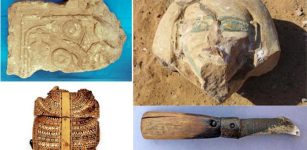 20 Mummies Discovered In Greco-Roman Tombs In Aswan, Egypt
Archaeology | Jan 21, 2022
20 Mummies Discovered In Greco-Roman Tombs In Aswan, Egypt
Archaeology | Jan 21, 2022 -
 Legendary Viking Sunstones Did Exist: Viking Sagas Were More Truthful Than We Realized
Featured Stories | Sep 15, 2023
Legendary Viking Sunstones Did Exist: Viking Sagas Were More Truthful Than We Realized
Featured Stories | Sep 15, 2023 -
 Indian Black Earth And Biodiversity Of The Amazon – New Study
Archaeology | Jun 24, 2020
Indian Black Earth And Biodiversity Of The Amazon – New Study
Archaeology | Jun 24, 2020 -
 Huge Roman Forum Discovered In Unknown Ancient City In Spain
Archaeology | Sep 4, 2023
Huge Roman Forum Discovered In Unknown Ancient City In Spain
Archaeology | Sep 4, 2023 -
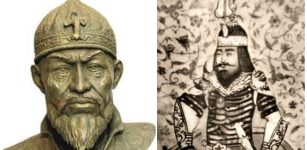 On This Day In History: Turco-Mongol Emperor Timur Sacks Damascus – On Mar 24, 1401
News | Mar 24, 2017
On This Day In History: Turco-Mongol Emperor Timur Sacks Damascus – On Mar 24, 1401
News | Mar 24, 2017

